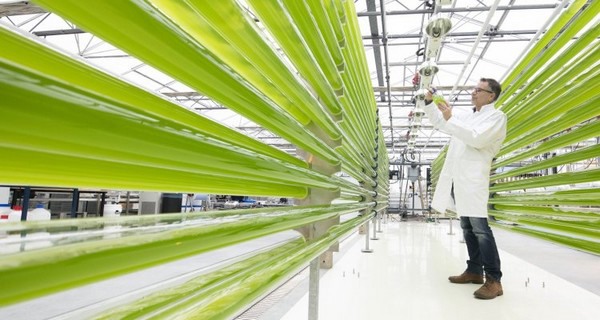AlgaePARC is a pilot facility run by Wageningen University & Research (WUR). For the past 10 years, it has served as a hub of technology development for microalgae production and biorefinery. The EU recognizes the importance of microalgae in achieving a transition to a green and circular economy, and its REACT-EU program recently awarded AlgaePARC funding which will enable SMEs to further develop their innovative technologies at the facility drawing on the expertise available within WUR.
AlgaePARC has supported SMEs and start-ups since 2016 by giving them access to some of its facilities. Two companies – FUMI and Algreen – have so far been founded based on research carried out at AlgaePARC. Three other SMEs are currently using AlgaePARC's facilities.

Petra Roubos, Manager of Shared Research Facilities at WUR, says: 'demand for these facilities is growing, so AlgaePARC needs to make new investments and increase its capacity to host SMEs and start-ups. Roubos emphasizes that these organizations are able to accelerate the roll-out of their innovations due to the additional space to test and develop new technologies for microalgae production and biorefinery. Roubos continues: 'Investing large sums into the development phase is a high-risk activity, and it's difficult for individual businesses to secure that kind of funding. This way, they get the support they need'.
SMEs and start-ups
AlgaePARC will use the REACT-EU funding to support a variety of SMEs and start-ups with the development of business cases for new technologies and products to help them attract investors and ensure that these solutions can actually materialize and get onto the market. Maria Barbosa, professor of bioprocess engineering at WUR, explains: 'this will, in turn, support the transition to a circular and sustainable bio-economy. AlgaePARC 2.0 will be able to offer access to new screening systems that can select algae strains more quickly, and the facility will also develop a biorefinery unit capable of isolating functional ingredients as well as biomass. Production and testing capacity will also be expanded at the laboratory, pilot, and demonstration levels, and innovative sensors will be introduced to enhance product quality.'
 For more information:
For more information:
Wageningen University & Research
www.wur.nl
